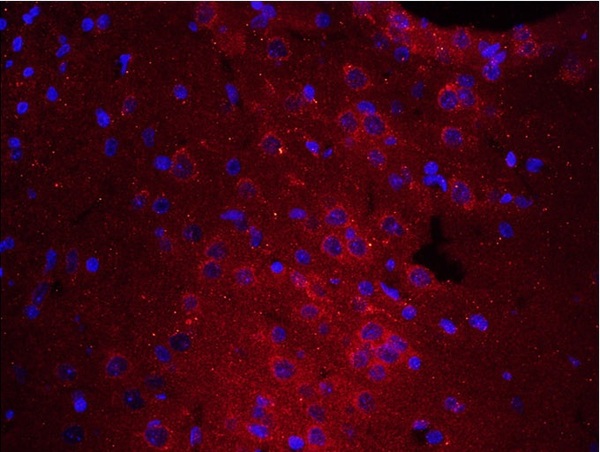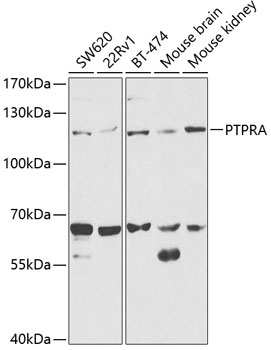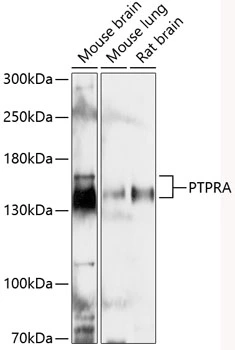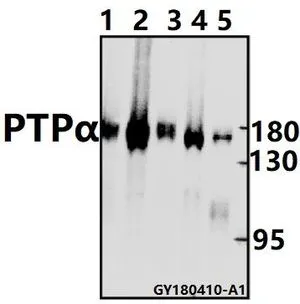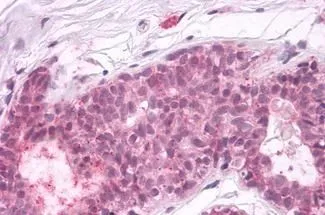PTPRA antibody
GTX70943
ApplicationsImmunoHistoChemistry, ImmunoHistoChemistry Paraffin
Product group Antibodies
ReactivityBovine, Canine, Equine, Hamster, Human, Mammals, Monkey, Mouse, Porcine, Rabbit
TargetPTPRA
Overview
- SupplierGeneTex
- Product NamePTPRA antibody
- Delivery Days Customer9
- Application Supplier NoteIHC-P: 10 microg/ml. IHC-P: 10 microg/ml. *Optimal dilutions/concentrations should be determined by the researcher.Not tested in other applications.
- ApplicationsImmunoHistoChemistry, ImmunoHistoChemistry Paraffin
- CertificationResearch Use Only
- ClonalityPolyclonal
- Concentration1 mg/ml
- ConjugateUnconjugated
- Gene ID5786
- Target namePTPRA
- Target descriptionprotein tyrosine phosphatase receptor type A
- Target synonymsHEPTP, HLPR, HPTPA, HPTPalpha, LRP, PTPA, PTPRL2, R-PTP-alpha, RPTPA, receptor-type tyrosine-protein phosphatase alpha, Leukocyte common antigen-related peptide (protein tyrosine phosphate), PTPLCA-related phosphatase, PTPase-alpha, protein tyrosine phosphatase, receptor type, alpha polypeptide, protein-tyrosine phosphatase alpha, tyrosine phosphatase alpha
- HostRabbit
- IsotypeIgG
- Protein IDP18433
- Protein NameReceptor-type tyrosine-protein phosphatase alpha
- Scientific DescriptionThe protein encoded by this gene is a member of the protein tyrosine phosphatase (PTP) family. PTPs are known to be signaling molecules that regulate a variety of cellular processes including cell growth, differentiation, mitotic cycle, and oncogenic transformation. This PTP contains an extracellular domain, a single transmembrane segment and two tandem intracytoplasmic catalytic domains, and thus represents a receptor-type PTP. This PTP has been shown to dephosphorylate and activate Src family tyrosine kinases, and is implicated in the regulation of integrin signaling, cell adhesion and proliferation. Three alternatively spliced variants of this gene, which encode two distinct isoforms, have been reported. [provided by RefSeq, Jul 2008]
- ReactivityBovine, Canine, Equine, Hamster, Human, Mammals, Monkey, Mouse, Porcine, Rabbit
- Storage Instruction-20°C or -80°C,2°C to 8°C
- UNSPSC12352203

